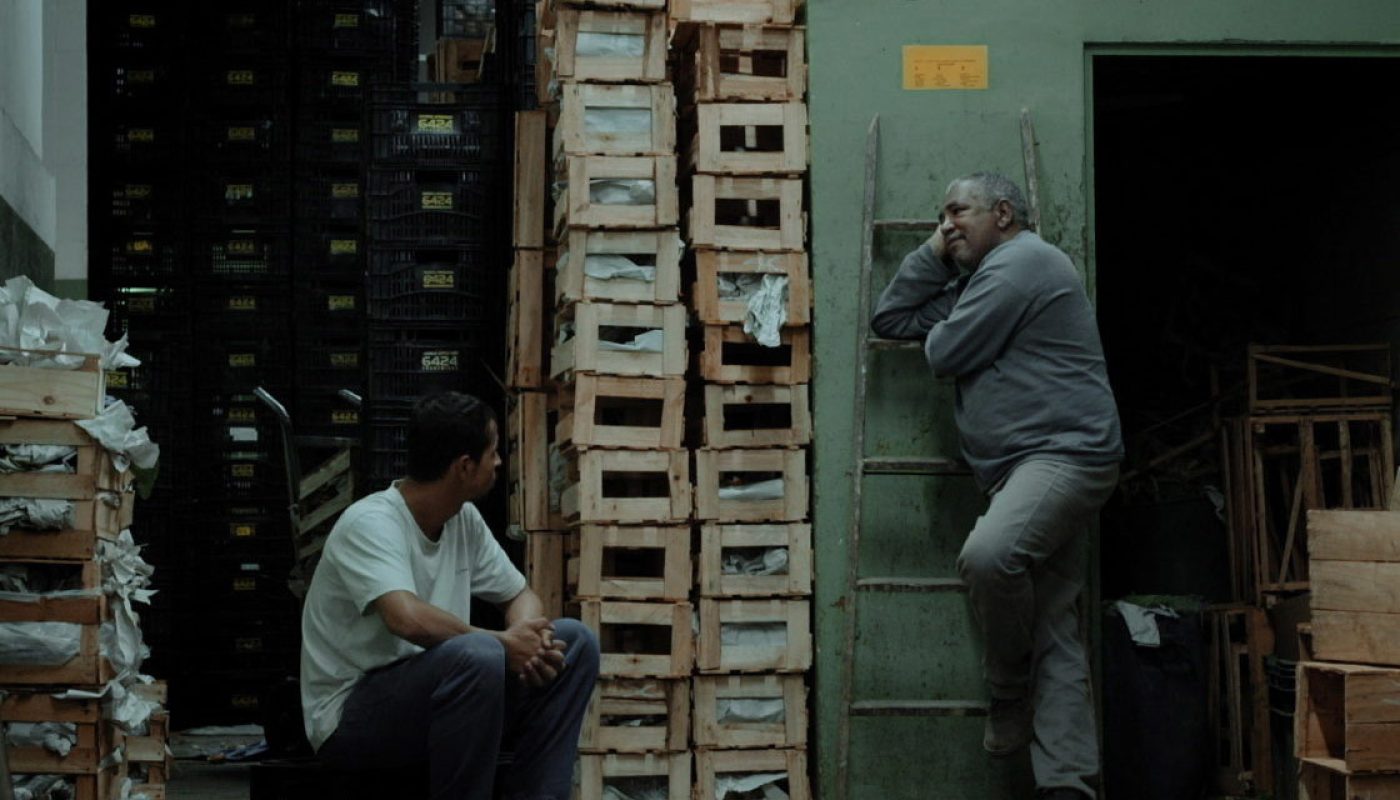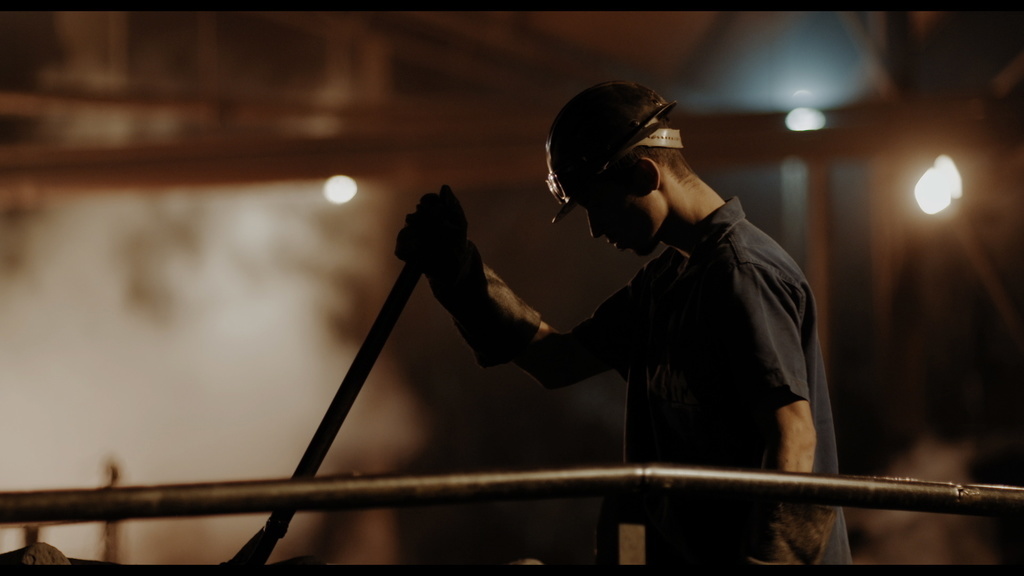

Affonso Uchôa and João Dumans about their film Arábia
Arábia and future projects.
Geplaatst op 13 augustus 2018After being selected for the International Film Festival Rotterdam and other festivals around the world with their dramafilm Arábia, Brazilian directors Affonso Uchôa and João Dumans are already thinking of continuing their joint work and creating new wonderful pieces of art. Today they share with CineSud how it all began: their first meeting, making decisions, preferences in actors and music and their future projects.
“The main thing is to identify the talent in a person and match it with the character that the film demands.”
First meeting and start of the collaboration
Affonso Uchôa and João Dumans first met at the cinema Cine Humberto Mauro located in Belo Horizonte, Brazil, where both directors come from. It brings different generations of filmmakers together and is an important place for developing cinematography in Brazil. They saw a lot of films and discussed them for hours, not only trying to understand the decisions behind what they saw on the screen, but also comparing their own tastes in movies. João remembers: “ This is how we learned something about filmmaking, mainly in the local bar. And then we started to think about our own projects.” From 2009 to 2014, Affonso had been filming The Hidden Tiger, in which his friend Dumans worked as a scriptwriter, assistant and editor. During the process of shooting and editing the movie, the two young men continued sharing their ideas and tried to gain maximum experience from this project. Dumans says, “Therefore when the time to make Arábia arrived, we already found a common ground of interests and desires, despite the differences in tastes and intentions that certainly existed.”

Preferences in actors
Affonso Uchôa thinks that there will always be non-professional actors playing in his films. Moreover, it doesn’t matter to him what acting background the cast of his film has. According to this Brazilian director, any skills gained by studying which can be achieved by experience, don’t necessarily make you a good actor. The main thing is to identify the talent in a person and match it with the character that the film demands. He considers, “As far as I am concerned, Aristides de Sousa is a great actor and the fact that he never had acting classes doesn’t make him an unskilled or even non-professional actor. He was paid for his work: that’s professional for me.” The key factors are the personal talent and the strong desire to participate in the film.
In Arábia the two Brazilian directors strived to respect what they heard and what they saw during the process of creating the film, to make the viewers forget it’s a fictional story. In addition to this, Affonso and João tried not to impose their own thoughts about politics or society to the main characters: “You use the reality of a film – the characters, the environment, the actions – to illustrate some idea that you have already come up with. You are not looking at things, you’re not doing a film, you’re doing a thesis.“ For the directors each hero must have a life of his own. It doesn’t solve all your narrative problems, but it helps to build the reality of the film according to their perception of the world.
Musical accompaniment in Arábia
Music plays a big role in the perception of Arábia for differing reasons. On João’s point of view, the first reason is that music is one of the only pleasures you can share with other people, one of the only escapes that people have for their imagination and feelings, especially for those who have to face the indifference of society, the daily routines of hard work, the lack of money and opportunities. And second, if there’s a place where you can find the history of the marginal people of the world, it’s certainly in music. Dumans tells, “That’s why we have mixed everything together in the film: Brazilian rap, regional music, american folk, etc. Some of the songs were suggested by ourselves, and some by the actors, for example, in the scene where the workers are playing guitar in the dormitory.”
Using a diary as a special feature of Arábia
Arábia is inspired by the literature and based on the power of common stories. That is why they decided to create a character who is a worker and a writer as well. Affonso remembers, “We thought a lot about the form and the origin of Cristiano’s writings and the script began to take its actual form when we thought it could be a good idea if he started to write a diary, because of a Factory Theatre Group demand. The work leads him to the writing process.” Cristiano’s diary is about understanding himself and the world.
International Film Festival Rotterdam
Affonso Uchoa prefers to believe that the film was selected on the grounds that some people consider the film to be good. Or at least good enough to be at the festival. He says:“ As the Rotterdam Film Festival is one of the greatest festivals in the world to premiere the film. this was a very special moment for us.” Another great experience that the Brazilian directors had with the film was the Brazilian premiere at Brasília Film Festival. This festival is the most important film event in their country of origin. A great part of the crew of Arábia was there with Uchôa and Dumans to support them and they won the competition. Affonso laughs, “Great weekend, I must confess”
Current projects
Both directors are now finishing up a medium length film with the provisional title of Seven Years in May. The film was shot in the same area where Hidden Tiger and some shots of Arábia were recorded. Furthermore, it tells us the story of a young guy who was tortured by the police for being mistaken for a drug dealer. However, the full film is not available yet, so we need to wait for its release in order to enjoy another wonderful peace of art. Uchôa adds: “I’m also writing the script of a new feature film called 2019, a free adaptation of the John dos Passos novel “1919”. The film’s narrative is based on the fragmentary and polyphonic structure of Dos Passos book to show the Brazilian contemporary life.”